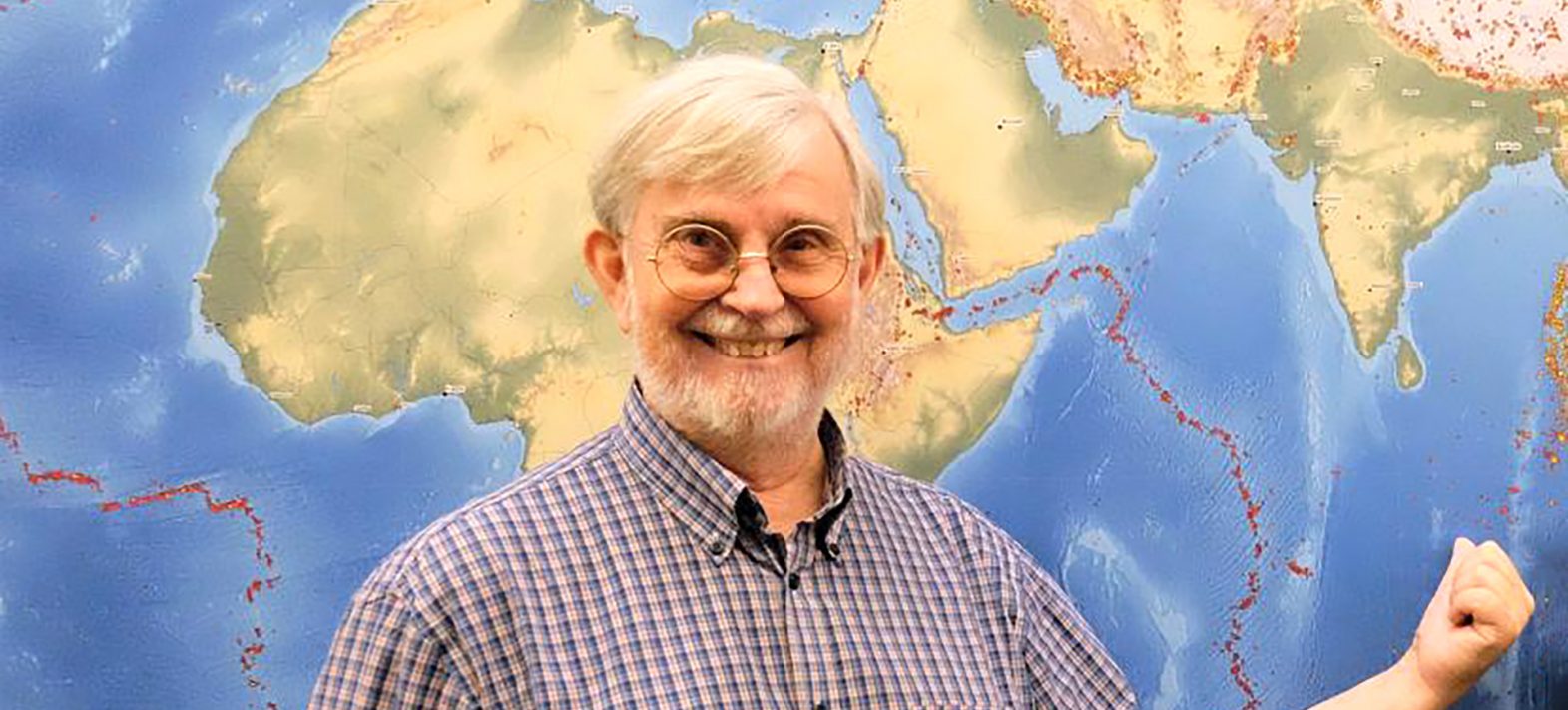Tribute to Paul Tapponnier (1947-2023)
Paul Tapponnier, a geologist who pioneered the study of continental deformation and founded the IPGP tectonics team in the early 1980s, died on 24 December in Beijing. His former colleagues and students have paid tribute to him.

(© NTU Singapore)
Publication date: 26/12/2023
Institute Life, Press
Related teams :
Tectonics and Mechanics of the Lithosphere
It is with great sadness that we learned that our mentor and colleague Paul Tapponnier passed away in Beijing on December, 24th, 2023.
Born in Annecy, France, on January 6, 1947, Paul Tapponnier was first and foremost an extraordinary field geologist and observer of nature. He had an exceptional talent for reading the record of the history of Earth crustal deformation in the landscape and in the rocks, and explaining his views in simple concepts. He pioneered the use of satellite imagery to map active faults and produced the first comprehensive map of active faults in central Asia. Based on this map, he proposed that Tibet was being pushed eastward as India is indenting into Asia. He developed models of the India-Asia collision using analog experiments and more recently numerical modeling. Through extensive collaborations with geologists from China, Nepal and other countries in Asia, his work led to the quantification of Quaternary fault rates in Tibet and neighboring regions. Based on his analog experiments and his geological observations, he proposed and demonstrated that the successive extrusion of continental blocks both accommodated the convergence between India and Asia and were associated with the opening of marginal basins. He also documented surface ruptures of a number of recent large earthquakes and discovered evidence of major past earthquakes on a number of faults at the piedmont of the Himalayas. Beyond Asia, Tapponnier clarified rift propagation, earthquake return times, and tsunami sourcing in Afar, Mediterranean region, Antilles, Indonesia, and North America. His ideas and methods have enormous influence on our understanding of tectonics.
Paul Tapponnier graduated from the prestigious Ecole Nationale Supérieure des Mines de Paris in 1970. During his training there he developed a passion for geology that devoured him his entire life. After a thesis at University of Montpellier (1971-1978), in close cooperation with Maurice Mattauer and including a stay (1973-1975) at the Massachusetts Institute of Technology to work with Peter Molnar, he moved to the Institut de Physique du Globe de Paris where he founded the Laboratoire de Tectonique, Mécanique de Lithosphère. He took part to the first field expeditions in Tibet, revealing his talent for reading the signs of active tectonics in landscape. In 2009, he went on for an international career first at the Earth Observatory of Singapore, and from 2019, at the National Institute of Natural Hazards in Beijing. Fluent in French, Italian, English, he also learned basic Chinese. Paul was a real cosmopolite, curious of all aspects of foreign cultures, a food amateur in particular.
During his career Paul Tapponnier received numerous awards and honors, including the Silver Medal of the Centre National de la Recherche Scientifique, France, (1984), the Alfred Wegener Medal (European Geological Union, 1985), the Grand Prix de La ville de Paris (1990), Fellow of American Geophysical Union (1994), Francis Birch Lecturer (American Geophysical Union, 1999), and the Lyell Medal (Geological Society of London, 2001). He was member of the French Academy of Science (2005, corresponding member since 1994), Foreign member of the US National Academy of Science (2005), Honorary Fellow of the Geological Society of London, (2008), Einstein Professor of the Chinese Academy of Sciences (2011), and Honorary Member of the Nepal Geological Society (2012). He was also promoted to the rank of Chevalier of the French Legion of Honor in 1996, and received the Friendship Award from the Chinese government in 1998.
The enduring legacy of Paul Tapponnier extends through the numerous students and postdoc scholars he mentored throughout his career, successively at Institut de Physique du Globe de Paris, Earth Observatory of Singapore at Nanyang Technological University, and the National Institute of Natural Hazards in Beijing. He will be fondly remembered for his infectious passion for geology, genuine concern for the success of his students, and unwavering interest in their career development. He is survived by his wife, the renowned photographer Kevin Kling, with whom he shared a passion for the landscapes and cultures of Asia and who took part to numerous of his field adventures.
Nicolas Arnaud, Jean-Philippe Avouac, Lucilla Benedetti, Anne Briais, Marie-Luce Chevalier, Liqing Jiao, Liu Jing, Yann Klinger, Cecile Lasserre, P. Hervé Leloup, Haibing Li, Isabelle Manighetti, Gilles Peltzer, Anne Replumaz, Jerome Van der Woerd, Xiwei Xu on behalf of his former students and colleagues around the world.







